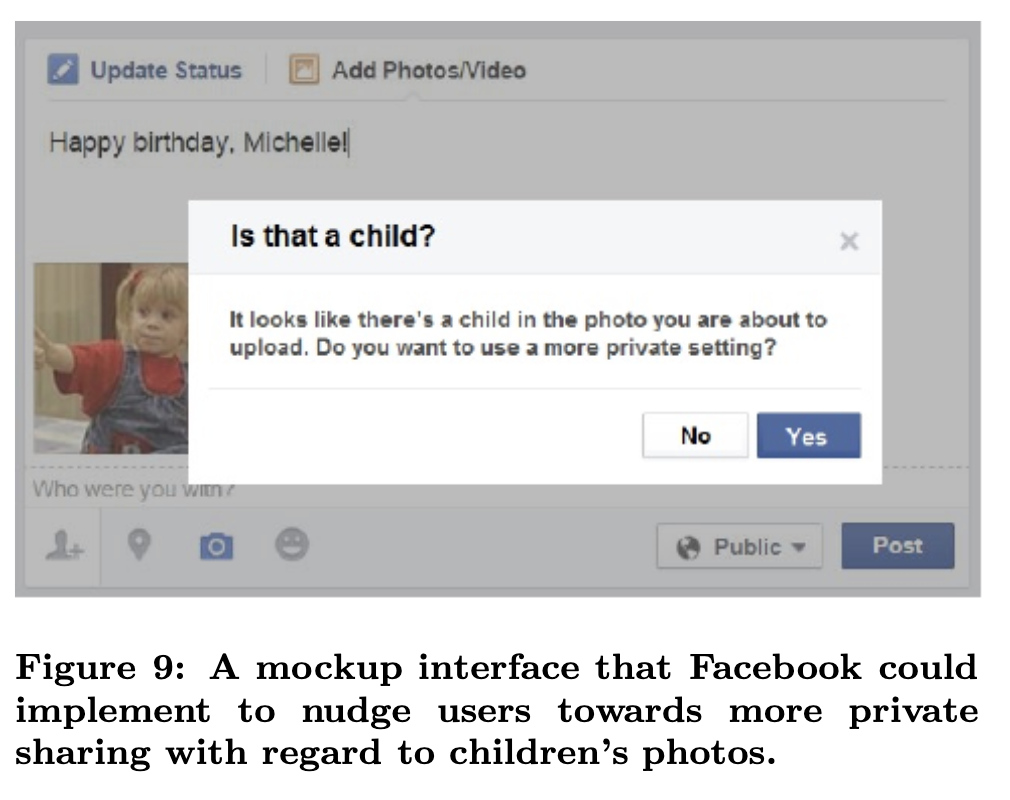With the increasing use of Social Media and Online Social Networks such as Facebook or Instagram) the question of conflicting privacy settings becomes more and more relevant.
Minkus et al. [1] conducted a study to focus on OSN behavior of parents and found that many privacy breaches may occur to children at the hands of others, namely, their parents and relatives. These authors also designed interventions to mitigate compulsive sharing on social networks. 
[1] Tehila Minkus, Kelvin Liu, and Keith W. Ross. 2015. Children Seen But Not Heard: When Parents Compromise Children’s Online Privacy. In Proceedings of the 24th International Conference on World Wide Web (WWW ’15). International World Wide Web Conferences Steering Committee, Republic and Canton of Geneva, CHE, 776–786. DOI: https://doi.org/10.1145/2736277.2741124

